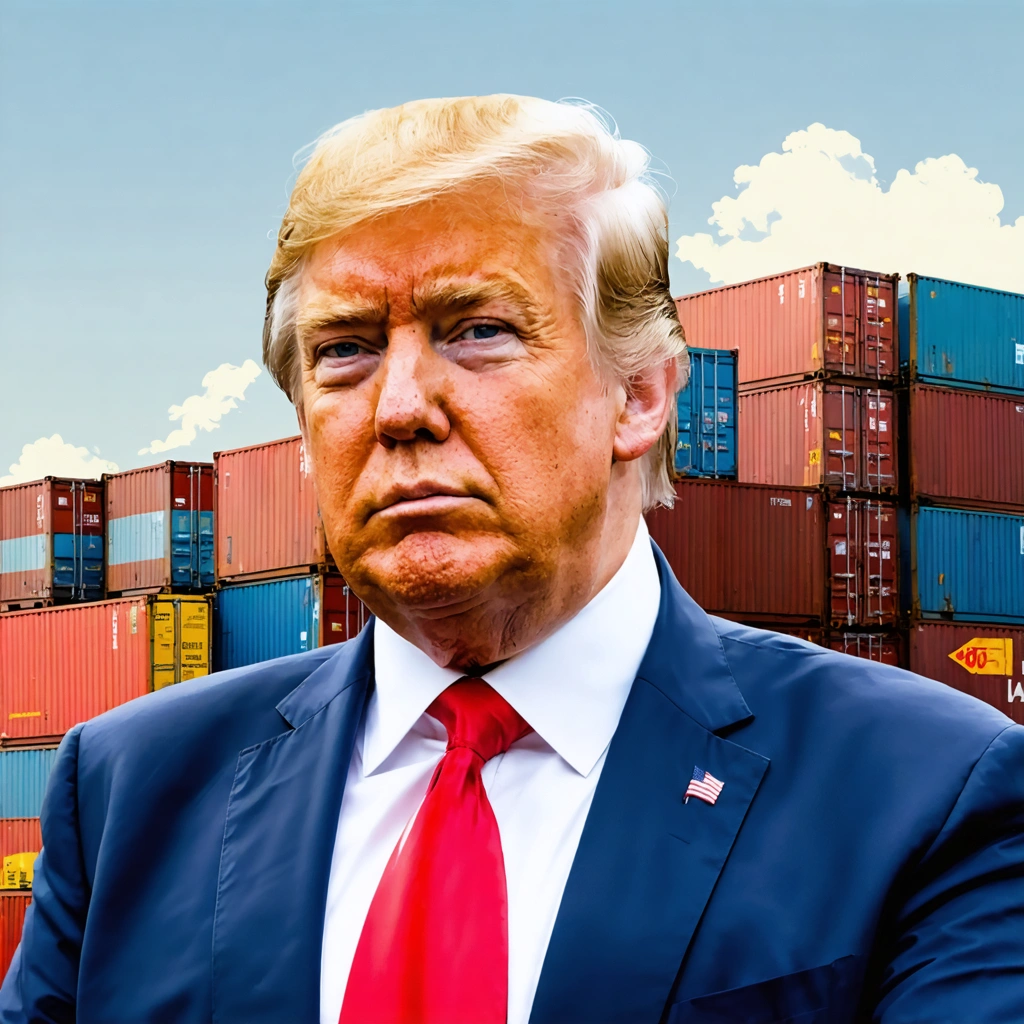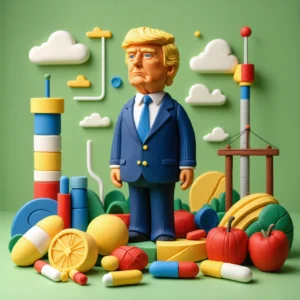
An Unexpected Shift in Global Trade
The global trade panorama experienced an unexpected shift as President Trump embraced protectionism, a move that experts had not witnessed in nearly a century. David Lammy, a vocal critic and foreign secretary, expressed regret over this historic pivot. He highlighted that Britain stands as a nation that champions open trade and warned that the current actions may isolate the United States on the international stage. Moreover, Lammy stressed that embracing protectionism could create long-lasting implications for global cooperation. Experts argue that clear communication and decisive action remain essential during these turbulent times.
UK’s Strong Belief in Open Trade
British policymakers maintained that open trade has always formed the bedrock for economic progress. Consequently, the UK government initiated negotiations with the US, aiming to secure a balanced economic agreement. Leaders demonstrated commitment to maintaining robust trade relationships while expressing dismay over the new US tariff policy. In particular, David Lammy’s statements underscored the maturity of British trade philosophy and its international outlook. Furthermore, passionate debates circulated on British television, where several political figures championed free trade and international cooperation. Each statement resonated with a broader narrative that placed Britain at the forefront of global economic integrity.
Key Points from Recent Developments
- President Trump’s embrace of protectionism remains unprecedented in recent US history.
- David Lammy voiced regret and concern over the long-term implications.
- The UK government continues to negotiate for a mutually beneficial economic agreement.
- Critics argue that tariffs jeopardize global economic stability.
Political and Economic Debates Intensify
British leadership and policymakers challenged the recent US trade policy, insisting that new global tariffs may undermine established trade networks. Downing Street, however, refrained from confirming claims made by President Trump regarding Keir Starmer’s purported contentment with the new arrangements. Instead, government spokespersons clearly stated their disappointment with the tariff regime and reiterated the commitment to negotiate extensively with US counterparts. In these discussions, political narratives gained traction, while public opinion shifted amid heated debates. Additionally, many British citizens voiced their support for unswerving commitment to an open-trade framework.
Statistical Overview: Trade and Economic Growth
To illustrate the emerging trends, experts compiled detailed statistics that compare the impact of US tariffs on various economic indicators. The table below highlights key statistics drawn from recent economic reports, and it serves as a guide to understanding the larger picture.
| Indicator | Pre-Tariff Growth | Post-Tariff Effect | Forecast |
|---|---|---|---|
| GDP Growth | 3.2% | 2.1% | 2.5% |
| Trade Volume | $1.2 trillion | $950 billion | $1.1 trillion |
| Foreign Investments | $500 billion | $350 billion | $450 billion |
Moreover, analysts stressed a direct correlation between tariff hikes and the decline in cross-border investments. It becomes essential to note that each metric contributes to the overall economic narrative, thereby supporting the calls for renewed dialogue between nations.
Legal and Social Implications in the UK
Meanwhile, on the domestic front, recent legal proceedings have captured public interest in the United Kingdom. Livia Tossici-Bolt faced the legal consequences of breaching a buffer zone outside an abortion clinic in Bournemouth. Reports indicate that the magistrates imposed a conditional discharge for two years on her charges. This incident generated significant discussion within political and legal circles, wherein many argued that such actions draw attention to broader social challenges. Additionally, the public closely monitored how these legal decisions might affect future protests and regulatory frameworks. In light of these events, authorities continue to evaluate policy modifications that could avert future escalations.
Observations by Political Analysts
Political pundits and economic experts emphasized that critical dialogue persists on both sides of the Atlantic. They noted several factors that contribute to the evolving scenario:
- Government negotiations that signal ongoing dialogue despite ideological differences.
- Public discontent that increasingly favors an open-trade policy framework.
- Institutional responses which help shape a balanced approach to global competition.
Analysts believe that these factors intertwine to create a complex environment where every decision bears significant ramifications. Consequently, extensive debates continue to shape policy directions and strategic trade agreements.
The Road Ahead for International Trade
Looking forward, economists and policymakers project several likely paths as nations navigate this challenging landscape. They recommend that stakeholders focus on restoring certainty through multilateral discussions and transparent negotiations. For example, both British and American leaders appear eager to resolve these disputes while ensuring that the interests of consumers and businesses remain intact. Importantly, policymakers expounded on the need to modernize trade frameworks in response to the rapidly changing global economy. Incidentally, these challenges catalyzed a renewed commitment to a rules-based international order.
Strategies to Mitigate Trade Disruptions
Experts advocate for a series of proactive steps to mitigate the adverse effects of protectionist policies. These strategies include:
- Facilitating progressive negotiations between governments.
- Modernizing tariff structures to promote open competition.
- Engaging industry leaders in shaping future trade agreements.
- Boosting economic resilience through diversification.
Furthermore, the government has outlined specific measures to enhance bilateral trade relations. Notably, these steps intend to cushion the immediate economic impact, while nurturing long-term strategic alliances.
A Comprehensive Review of Recent Policy Shifts
In analyzing the latest developments, it becomes clear that the global economic structure experiences significant fluctuations as policymakers reassess trade priorities. British leaders persistently pushed for mitigating measures, often employing robust public statements to reinforce commitment to open trade principles. Additionally, interviews and live political commentaries conveyed a sense of urgency that resonated across multiple sectors. Consequently, many experts now argue that adapting trade policies swiftly offers the best route to sustainable economic growth. Clearly, the old paradigms have become outdated, and immediate adjustments appear necessary for maintaining competitiveness on the world stage.
Mixed Reactions across the Political Spectrum
The public and political commentators provided a spectrum of responses regarding the tariff debate. While some praised the firm stance on traditional trade ethics, others criticized the apparent rigidity in policy adjustments. Broadly, the responses included:
- Enthusiastic support for free-market ideas.
- Calls for cautious recalibration to protect domestic industries.
- Debates over the potential diplomatic fallout in international forums.
Every discussion reiterated that successful trade policy requires not only economic foresight but also a balanced diplomatic approach. Consequently, political leaders endeavor to unify divergent opinions and channel them into constructive negotiations.
Historical Context and Implications
Historically, protectionism often marked periods of economic downturn and isolationism. Today, international observers make connections between past trade policies and current decisions, noting that disruptive tariffs usually precipitate wider economic instability. For instance, many historians have revisited early 20th-century policies to provide insights on modern challenges. Such comparative analyses help ground political rhetoric in historical reality. Moreover, the discussion benefits from lessons learned from previous eras, thereby informing current policy deliberations. Each historical reference enriches the analysis and underscores the persistent importance of free trade principles.
Looking to a Balanced Future
The narrative emerging from current debates urges leaders to consider the long-term consequences of protectionist policies. As political voices converge on the topic, strategies emphasizing bilateral and multilateral cooperation find favor. Simultaneously, public demand for transparency in trade negotiations has grown. In this context, decision-makers face the dual challenge of defending national interests while remaining faithful to broader global commitments. Therefore, the path ahead necessitates policies that are flexible yet grounded in a mutual understanding among international partners. In conclusion, every measure now takes on enhanced significance as history unfolds before modern audiences.




